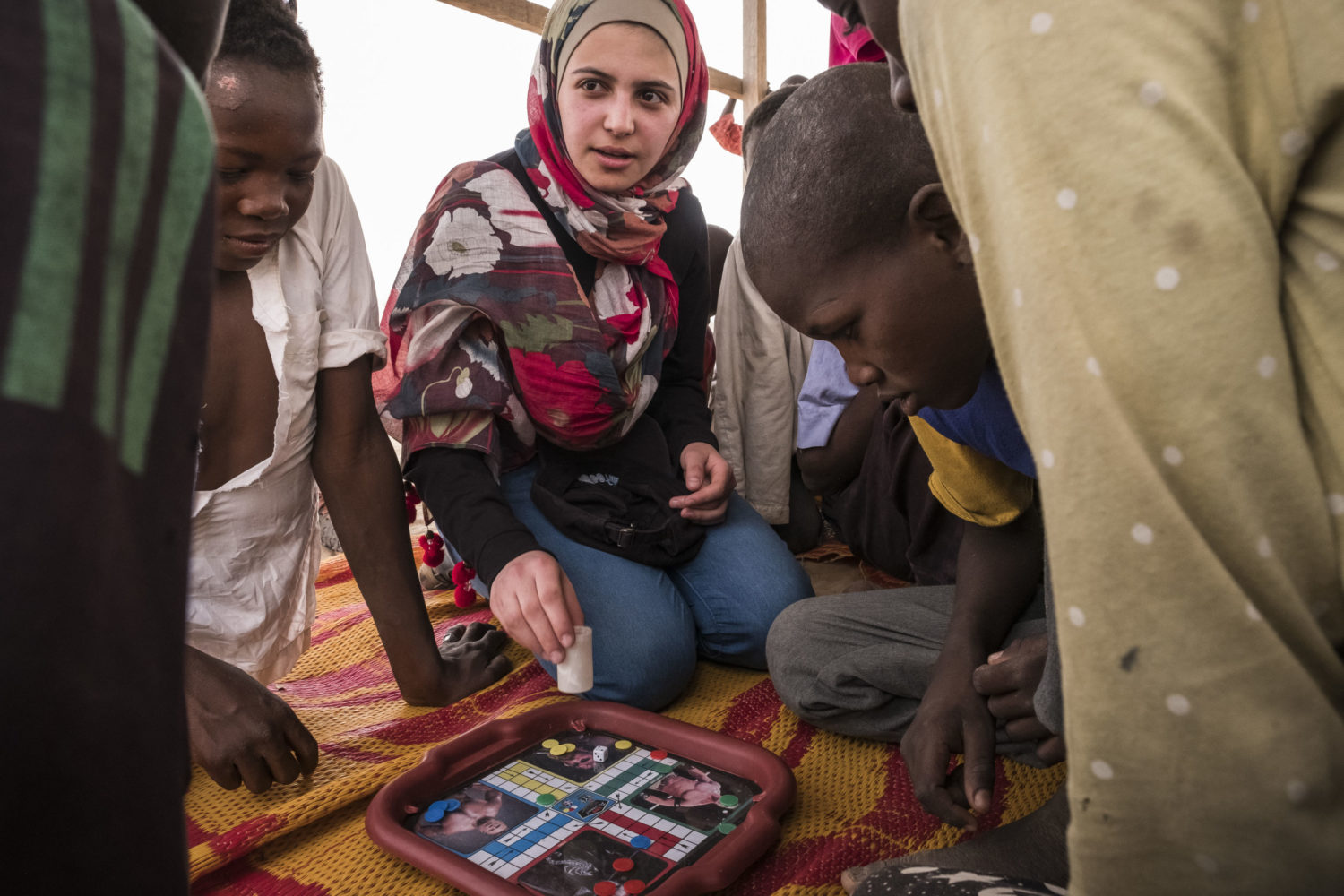Download photos, video and b-roll: http://uni.cf/2rlg9Tn
LONDON, 19 June 2017 – Unicef announced today, on the eve of World Refugee Day, the appointment of Muzoon Almellehan, a 19-year-old education activist and Syrian refugee, as its newest – and youngest – Goodwill Ambassador. The appointment makes Muzoon the first person with official refugee status to become an Ambassador for Unicef.
Muzoon, who received support from Unicef while living in Za’atari refugee camp in Jordan, follows in the footsteps of the late Audrey Hepburn, a Goodwill Ambassador who was also supported by Unicef as a child.
“Even as a child, I knew that education was the key to my future, so when I fled Syria, the only belongings I took with me were my school books,” said Muzoon. “As a refugee, I saw what happens when children are forced into early marriage or manual labor – they lose out on education and they lose out on possibilities for the future. That’s why I am proud to be working with Unicef to help give these children a voice and to get them into school.”
Muzoon fled the conflict in Syria along with her family in 2013, living as refugee for three years in Jordan before being resettled in the United Kingdom. It was during her 18 months in the Za’atari camp that she began advocating for children’s access to education, particularly for girls.
“Muzoon´s story of bravery and fortitude inspires us all. We are very proud she will now become an Ambassador for Unicef and children around the world,” said Unicef Deputy Executive Director Justin Forsyth.
Muzoon recently travelled with Unicef to Chad, a country where nearly three times as many girls as boys of primary school age in conflict areas are missing out on education. She met with children forced out of school due to the Boko Haram conflict in the Lake Chad region. Since her return, Muzoon has been working to promote understanding of the challenges children affected and uprooted by conflict face in accessing education.
An estimated 25 million children of primary and secondary school are out of school in conflict zones. For children living as refugees, only half are enrolled in primary school and less than a quarter are enrolled in secondary school.
Education in emergencies is severely underfunded. Since 2010, less than 2 per cent of humanitarian funding has been spent on education. $8.5 billion are needed annually to close this gap.
-ENDS-
Key Facts:
• Across the globe, nearly 50 million children have been uprooted – 28 million of them driven from their homes by conflicts not of their making, and millions more migrating in the hope of finding a better, safer life.
• Refugee children and adolescents are five times more likely to be out of school than their non-refugee peers.
• Girls affected by conflict are 2.5 times more likely to be out of school than boys.
• Protracted crises present complex challenges. Refugees spend on average 17 years displaced, almost an entire childhood.
• Education in emergencies is severely underfunded. Since 2010, less than 2.7 per cent of humanitarian funding has been spent on education. $8.5 billion USD is needed annually to close this gap.
Note to editors:
Education is one of six key actions that Unicef is urging governments to take to protect child refugees. Unicef is urging the public to join the more than 3 million people already standing in solidarity with children uprooted by war, violence and poverty by supporting the six-point Agenda for Action which includes:
1. Protect child refugees and migrants, particularly unaccompanied children, from exploitation and violence;
2. End the detention of children seeking refugee status or migrating, by introducing a range of practical alternatives;
3. Keep families together as the best way to protect children and give children legal status;
4. Keep all refugee and migrant children learning and give them access to health and other quality services;
5. Press for action on the underlying causes of large scale movements of refugees and migrants;
6. Promote measures to combat xenophobia, discrimination and marginalization in countries of transit and destination.
For more information, please contact:
Unicef UK press office, 020 7375 6030, [email protected]
About Unicef
Unicef is the world’s leading organisation for children, promoting the rights and wellbeing of every child, in everything we do. Together with our partners, we work in 190 countries and territories to translate that commitment into practical action, focusing special effort on reaching the most vulnerable and excluded children, to the benefit of all children, everywhere.
Unicef UK raises funds to protect children in danger, transform their lives and build a safer world for tomorrow’s children. As a registered charity we raise funds through donations from individuals, organisations and companies and we lobby and campaign to keep children safe. Unicef UK also runs programmes in schools, hospitals and with local authorities in the UK. For more information please visit unicef.org.uk


